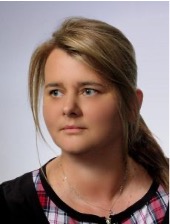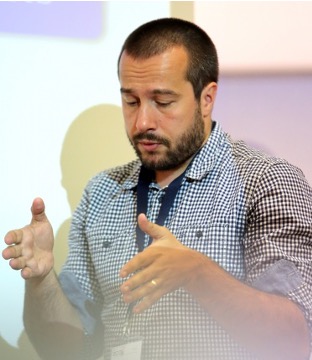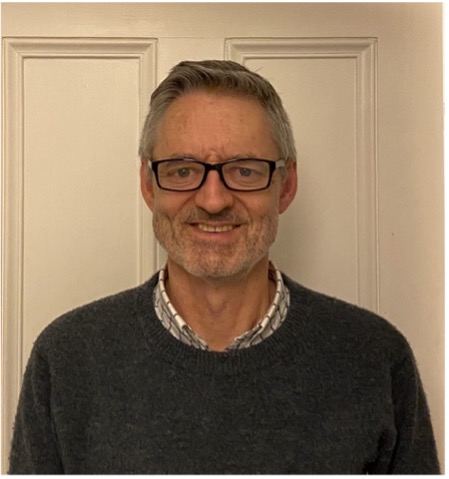Keynote Speakers
Invited talk: Security, reliability, and trust in cloud digital service chains –GUARD platform
Prof. Joanna Kolodziej NASK – National Research Institute, ul. Kolska 12, 01-045 Warsaw, Poland.
Abstract: In the era of massive business digitalization, the transition to the cloud became a standard procedure for business making. However, it is important to ensure that modern cloud-based business models are not at greater risk than on-premise ICT environments. Evolving such business models are progressively reshaping the scope and structure of the cloud services provided by third parties, with tight integration with the cloud. Several market forces are already driving toward the creation of multi-domain and complex business service chains in the cloud, which bring more agility in security and privacy concerns. In this talk, the recent developments in secure cloud computing business-related models will be surveyed along with the presentation of the main results of the H2020 GUARD project. The GUARD partners are currently the leading EU cybersecurity players in developing an innovative, open, and extensible cloud-based platform for advanced assurance and protection of trustworthy and reliable business chains spanning multiple cloud administrative domains and infrastructures. Intelligent Net Anomaly Detectors and Signature-based Attack Detectors developed by NASK as the components of the GUARD platform will be demonstrated. Such components can be successfully implemented in local cloud clusters and edge-like infrastructures (such as LoRa networks) as well as the multi-cluster cloud-integrated environment. Detailed information about the GUARD platform is available on the GUARD webpage – https://guard-project.eu.

Biography: Joanna Kołodziej graduated in Theoretical Mathematics from the Jagiellonian University in Cracow (Poland) in 1992, where she also received a Ph.D. in Theoretical Computer Science in 2004. In the period of 1992-1997, she worked as a project manager and senior CAD/CAM project manager in Petroleum Engineering (Bipronaft Cracow and INES Project Studio). In September 2012 she joined the Cracow University of Technology as Associate Professor and Professor. Since October 1, 2019, she works also a full-time professor at NASK Poland (www.nask.pl) in Warsaw, Poland. She is a full professional member of the ACM and SIGEVO groups. She is also a research fellow in the Intelligent Information Systems Group at AGH University of Science and Technology, Cracow (Poland). The main topics of her research are evolutionary computation, grid, and cloud computing, intelligent networking, scalable computation, multi-agent systems, global optimization meta-heuristics, cybersecurity in ICT systems, and blockchain. She is an author of 200+ papers published in international journals, books, and conference proceedings in the research area. Prof. Kołodziej is the author of one monograph and guest editor of the 15 other books edited by Springer Vlg. She has served as a guest editor of 25+ special issues of highly indexed journals in the domain. She is serving as the area editor of several top journals including IEEE Transactions on Services Computing, IEEE Access, Sensors, Cluster Computing, Simulation Modelling Practice, and Experience. Her H-index values are 34 (in Google Scholar), 27 (in Scopus), and 23 (in WoS). Prof. Kołodziej has served and is currently serving as General Co-Chair and General Program Co-Chair of 40+ international conferences and workshops. Recently she is involved in the organization of the CCGRID conference. Prof. Kołodziej participated in the realization of several international and national projects. The most important are ECONET, 7FP Grant No: 258454 closed in April 2014, ongoing PARAPHRASE 7FP Grant No: 288570, Polish National Science Centre, No. N N516 500039, “Biologically inspired mechanisms in planning and management of dynamic environments”. She is a general coordinator of the CISCO Academy Programme and FlexSim Ph.D. Programme at the Cracow University of Technology. She was the Chair of the cHiPSet Cost Action IC1406 (chipset-cost.eu) – the largest ICT cost European project. She is also the national coordinator of the GUARD H2020 project and an Advisory Board Member of the PANELFIT H2020 project. Prof. Kołodziej has been awarded the best MSD Thesis in Theoretical Mathematics by the Polish Mathematical Society in 1992 and for the best Ph.D. Thesis in Computer Science, Physics, and Mathematics by The Foundation for Polish Science in 2004.
Invited talk: Visualization Perspectives in Explainable AI
Dr. Andreas Kerren – Linköping University (LiU) and Linnaeus University (LNU), Sweden.
Abstract: This talk will overview interactive data visualization research with a focus on the development and use of visualization techniques for explainable artificial intelligence. The field of Information Visualization (InfoVis) uses interactive visualization techniques to help people understand and analyze data. It centers on abstract data without spatial correspondences; that is, usually, it is not possible to map this information directly to the physical world. This data is typically inherently discrete. Examples of such abstract data are symbolic, tabular, networked, hierarchical, or textual information sources (for example, genealogies, demographic data of a population, or trends in time-dependent data). The related field of Visual Analytics (VA) focuses on the analytical reasoning of typically large and complex (often heterogeneous) data sets and combines techniques from interactive visualizations with computational analysis methods. I will show how these two fields belong together and highlight their potential to efficiently analyze data and Machine Learning (ML) models with diverse applications in the context of data-intensive sciences. As ML models are considered complex and their internal operations are mostly hidden in black boxes, it becomes difficult for model developers but also for analysts to assess and trust their results. Moreover, choosing appropriate ML algorithms or setting hyperparameters are further challenges where the human in the loop is necessary. I will exemplify solutions to some of these challenges with the help of a selection of visualization showcases recently developed by my research groups. These visual analytics examples range from the visual exploration of the most performant and most diverse models for the creation of stacking ensembles (i.e., multiple classifier systems) to ideas of making the black boxes of complex dimensionality reduction techniques more transparent in order to increase the trust into their results.

Biography: Dr. Andreas Kerren received his Ph.D. degree in Computer Science from Saarland University, Saarbrücken, Germany. In 2008, he achieved his habilitation (docent competence) from Växjö University, Sweden. Dr. Kerren is currently a Full Professor of Information Visualization, Linköping University (LiU) and Linnaeus University (LNU), Sweden. He holds the Chair of Information Visualization at LiU and is head of the research group Information and Software Visualization at LNU. His main research interests include several areas of information visualization and visual analytics, especially visual network analytics, text visualization, and the use of visual analytics for explainable AI. He is an editorial board member of the Information Visualization and Computer Graphics Forum journals, has served as organizer/program chair at numerous conferences, such as IEEE VISSOFT 2013/2018 or GD 2018, and has edited a number of successful books on human-centered visualization. Kerren has published about 200 peer-reviewed papers, articles, and book chapters.
Invited talk: Predictive control for congestion management and decision-making on meshed electrical grids with high-power batteries
Sorin Olaru – Profesor at CentraleSupélec, Laboratory of Signals and Systems (CNRS), University Paris-Saclay, France.
Abstract: Power generation has been undergoing a radical change due to the expansion of renewable energies. The part of the generation which can be characterized as intermittent and scarce is increasing in importance and is creating new overload constraints on electrical grids called congestions. In this context, batteries are gaining growing attention for their potential in congestion management. This talk will deal with the conception of new algorithms relying on batteries to solve congestions on the meshed electrical grids. The presented control strategy mingles batteries actions and renewable curtailment. The control is based on two levels. The upper level relates to planification and the lower level is dedicated to real-time congestion management. The lower level is developed using Model Predictive Control and provides a framework to take into account delays on control actions. The upper level covers the batteries trajectories planning, supports the lower level and defines batteries capacity used for real-time congestion management and the residual capacities of these batteries. This level can thus be used to define a multi-service framework for batteries.

Biography: Sorin Olaru is a Professor and head of the RTE Chair at CentraleSupelec, and a member of the CNRS Laboratory of Signals and Systems, all these organizations being part of the Paris-Saclay University in France. He held research positions or has been invited to scientist at INRIA in France, NTNU in Norway, Univ. of Newcastle in Australia, Kyushu Institute of Technology in Japan, FIAS in Germany. His research interests are encompassing optimization-based control design, set-theoretic characterization of constrained dynamical systems as well as numerical methods in optimization and control. He is currently involved in research projects related to embedded predictive control, fault tolerant control, and networked (time-delay) control systems.
Invited talk: Digital Manufacturing on a Shoestring: Co creating low cost Digital Solutions with SMEs
Duncan McFarlane – Professor at IFM, University of Cambridge, UK.
Abstract: This talk will preview an overview of The Digital Manufacturing on a Shoestring program and the research challenges that are associated with it. The programme is focused on the development of simple, low-cost digital devices and systems that improve the effectiveness of operations of small manufacturing companies. The Shoestring program has now been running for two years and has produced an extensive set of outputs including: (1) A prioritised “catalogue” of the most important digital solutions for small companies (2) A simple step-by-step design procedure for producing a wide range of digital solutions (from low cost components) (3) A set of “ready-to-go” solutions including: digitising of legacy analogue display panels; digital job tracking system; shopfloor inventory tracking system; cloud based vibration monitoring (4) 15 demonstrator systems and industrial pilots.
In the next year the programme plans to develop a foundation that will support these solutions into the future and provide training and skills development for SME participants. Shoestring “spin offs” in other domains are also evolving. Programmes in construction, logistics and medical devices are underway, and various Shoestring-like initiatives for large companies have begun.

Biography: Duncan McFarlane is Professor of Industrial Information Engineering at the University of Cambridge, head of Distributed Information & Automation Lab, chairman of Redbite Solutions Ltd and fellow of St John’s College, Fellow of the IET, Honorary Academic Fellow at Trinity College, Melbourne and Visiting Professor at University of Melbourne. He has been involved in the design and operation of industrial automation and information systems for twenty five years working both industrially and in academia. His research work has been in distributed, intelligent industrial automation, low cost digital systems, resilient control, RFID integration, track and trace systems, IoT and industrial logistics. Since 2000 he has been Director of the Auto ID Centre [2000-3] and Auto ID Labs [2003- present] – a programme which has led to the origins of ideas such as Internet of Things and Intelligent Products. He is founder and Chairman of RedBite Solutions Ltd – an industrial RFID and track & trace and IoT based asset management solutions company. He leads the Cambridge – Boeing research partnership and is Principal Investigator on the Digital Manufacturing on a Shoestring programme developing low cost digital solutions for small manufacturers. From March to July 2020 he led a team which won the RAE Presidents Award for providing Industrial Engineering support to local hospitals managing the Covid-19 Epidemic. Since August 2020 he has also been Operations Logistics lead at Cambridge for its asymptomatic student Covid-19 testing programme.